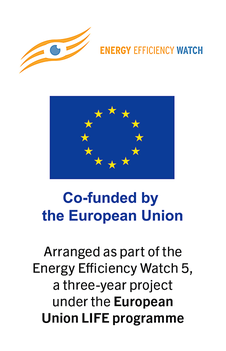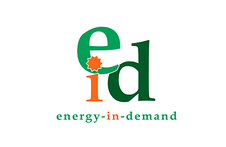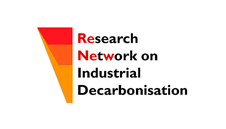Search eceee proceedings
Exploring and modeling the impact of supply chain-related decisions in production and logistics on energy efficiency – lessons learnt from the E2Log project
Panel: 2. Sustainable production design and supply chain initiatives
Authors:
Andreas Pastowski, Wuppertal Institute for Climate, Environment and Energy, Germany
Dorothea Schostok, Wuppertal Institute, Germany
Frank Ellerkmann, Fraunhofer Institute for Material Flow and Logistics, Germany
Jan Cirullies, Fraunhofer Institute for Material Flow and Logistics, Germany
Kathrin Hesse, Fraunhofer Institute for Material Flow and Logistics, Germany
Emanuel Fuss, Fraunhofer Institute for Material Flow and Logistics, Germany
Abstract
Most strategies for increasing energy efficiency in industry and logistics are heavily based on improvements of related technologies. As opposed to this, organisational approaches are often overlooked or only play a role as a complementing factor, once new technologies applied in production or logistics require some organisational change. Likewise there is not much evidence on the interrelation of decisions focused on production or logistics and their effects on energy efficiency.
While technological change is an important determinant and well-established strategy for energy efficiency in industry and logistics there is a lack of demonstrated organisational strategies. It requires in depth data collection on energy use and profound modelling exercises at the plant, company or a certain supply chain partner level to make the case for substantial organisational impacts and interdependencies that otherwise most likely remain invisible.
This contribution briefly describes the background, scope, methodology and selected results obtained from the E2Log project. E2Log was designed to better understand organisational causes of energy efficiency and to shed some light on likely interactions of decisions with a focus on either organisation of manufacturing or logistics as well as for coherent concepts for the both. Contrary to the extensive body of evidence on technical strategies there are much less insights available concerning the organisational causes of and strategies for improving ener-gy efficiency.
The project E2Log has taken stock of three case studies to explore some of the mentioned causes and interde-pendencies. This has provided the basis for modelling exercises that may help to better understand interrelated organisational variables and to design them in a way that the system-wide energy efficiency can be optimised. The three case studies cover plant-related logistics, a local production cluster and a particular branch of a global distribution network.
Downloads
Download this presentation as pdf: 2-091-14_Pastowski_pre.pdf
Download this paper as pdf: 2-091-14_Pastowski_N.pdf
Panels of
1. Programmes to promote industrial energy efficiency
2. Sustainable production design and supply chain initiatives
3. Matching policies and drivers: Policies and directives to drive industrial efficiency
4. Undertaking high impact actions: The role of technology and systems optimisation
5. The role of energy management systems, education, outreach and training
6. Business models to improve industrial efficiency, global perspective














